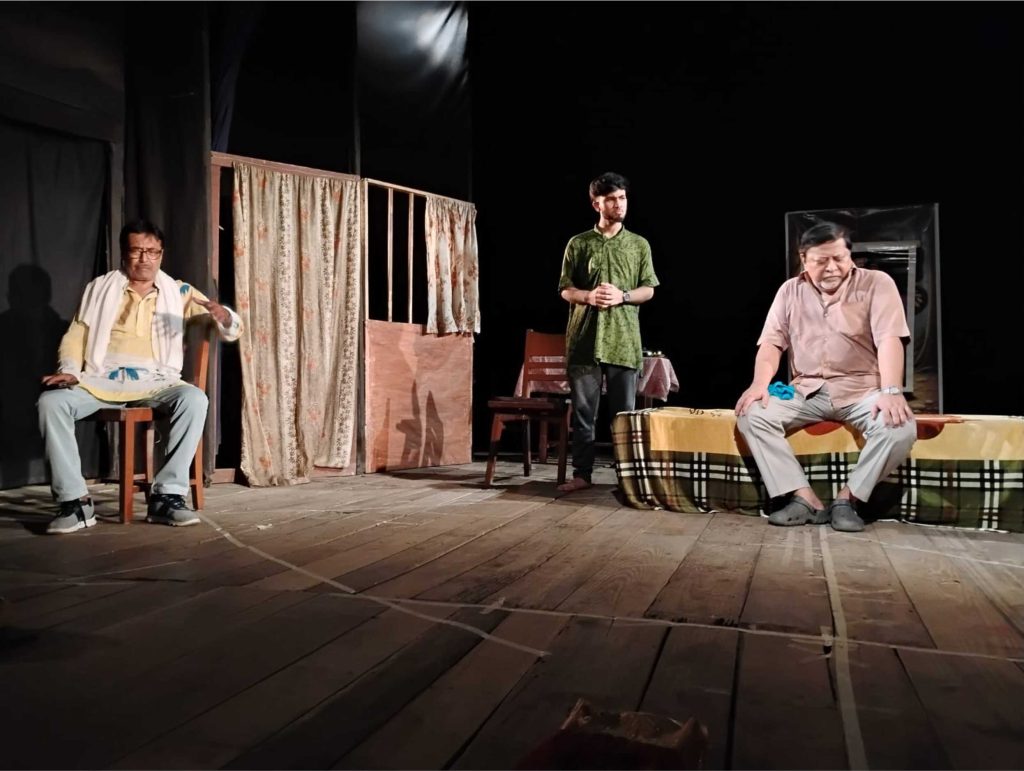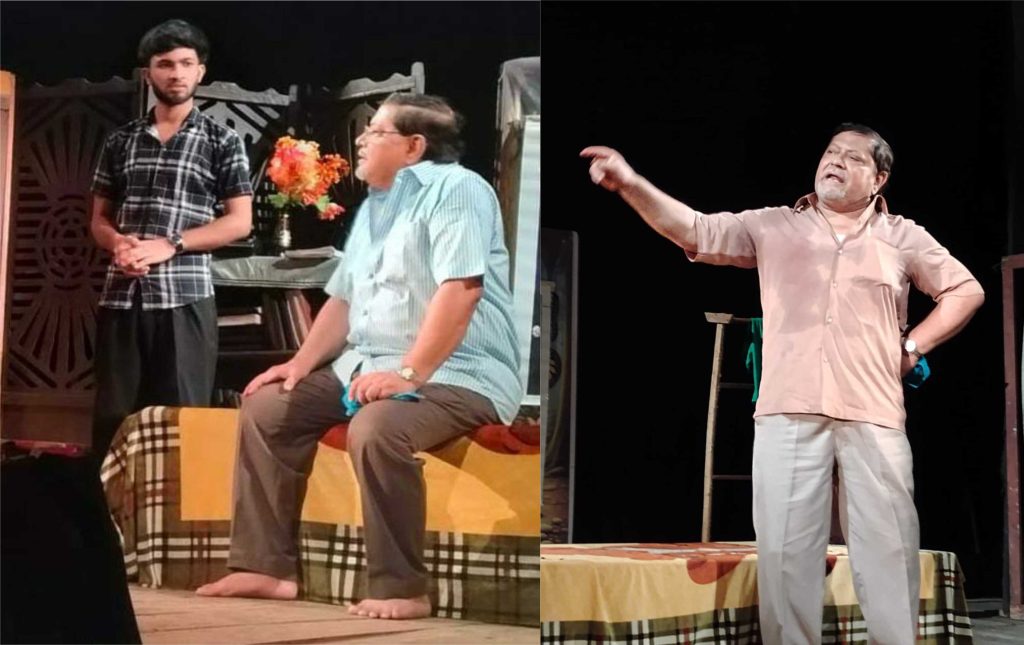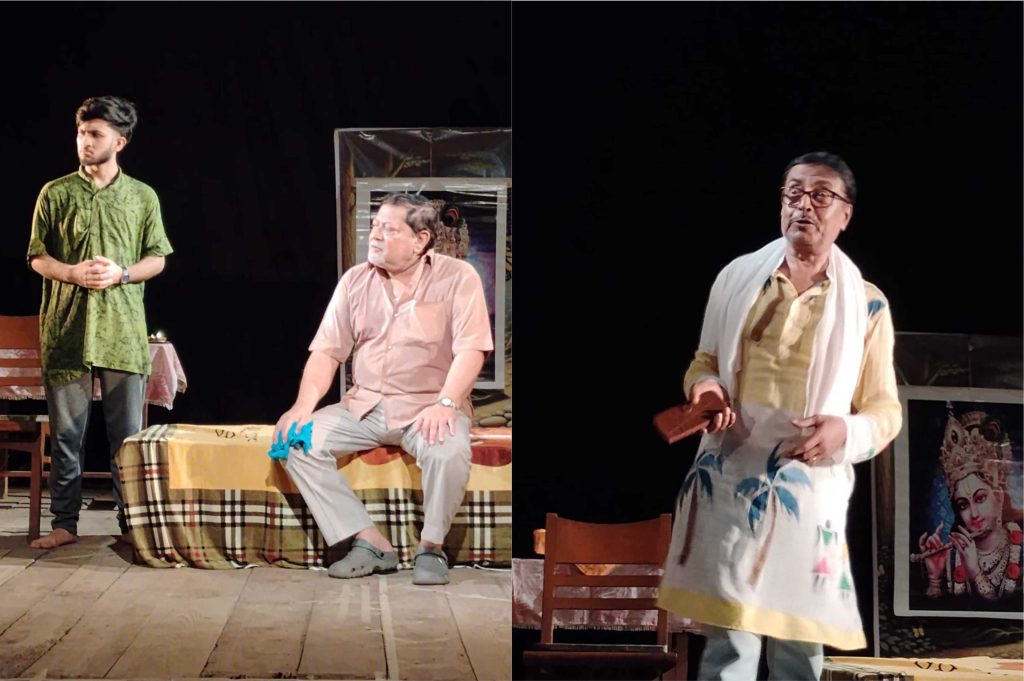Sandhi Bichchhed – A Short Play by Alipore Ahana
Chanchal Bhatacharya
On September 14, two short plays of contrasting moods were staged at Muktangan Mancha.
The first play, Sandhi Bichchhed, was presented by Alipore Ahona. This drama depicts the everyday diary of an ordinary middle-class family — a life suddenly gripped by the venomous claws of evil forces.
The story revolves around Nihar Babu, who lives happily with his wife Neeraja, son Shankha, and daughter Jhunu. Shankha, though an M.A. graduate, remains unemployed, while Jhunu is in a relationship with Soham, the son of Nihar Babu’s friend Joydeep. Sardaprasanna, Nihar Babu’s uncle, is a freedom fighter devoted to social work. He dreams of building a children’s park on his small plot of land.

However, this land catches the attention of promoters who wish to build a large housing project there. Sardaprasanna refuses to sell, and a conflict begins. A politically powerful promoter ally, Parimal Babu, interferes, triggering a chain of criminal violence. Anti-social elements attack Nihar Babu’s home; Sardaprasanna dies from a bomb blast and brick assault. On Dashami night during Durga Puja, the miscreants brutally rape and murder Jhunu.
The entire play unfolds through Jhunu’s flashback. Written by Amitabh Ghosh, this powerful drama exposes how terrifying the grip of promoter-raj can be in today’s society. The direction by Dipankar Chatterjee deserves high praise.

Dipankar Chatterjee’s direction and Saikat Manna’s lighting elevated the play to another level. Each actor performed their roles with authenticity. Notable performances came from Shaibal Banerjee as Grandfather, Gitali Chatterjee as Neerja, Amit Ganguly as Parimal, and Dipankar Chatterjee himself as Nihar. Dhruva Das, Rupam Marik, and Moumita Banerjee also delivered commendable performances.
Stage design was by Bablu Naskar, costumes by Gitali Chatterjee, makeup by Gour Koyal, and sound design by Dipankar Chatterjee — all of whom deserve appreciation.
Lopamudra Chakraborty’s rendition of Rabindra Sangeet captivated the audience.

The overall concept and direction of the play were handled by Dipankar Chatterjee, whose creative vision gave Sandhi Bichchhed both emotional depth and dramatic intensity. His approach to the narrative was sensitive yet powerful — transforming a simple story of a middle-class family into a strong social statement about greed, corruption, and moral decay in contemporary society.
Alipore Ahona deserves heartfelt thanks for presenting such a socially relevant and bold play that mirrors our present times.
